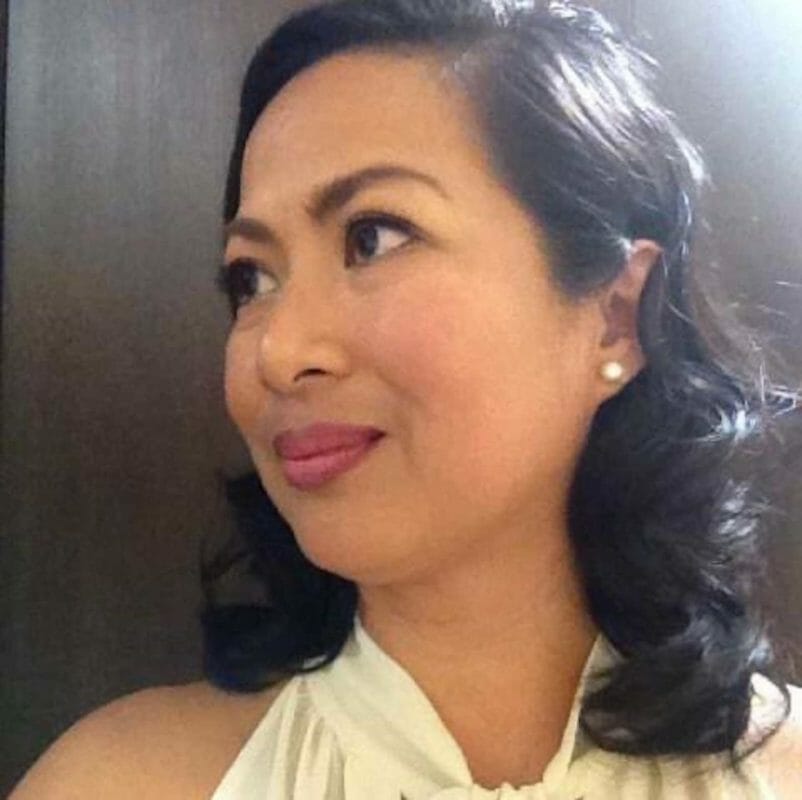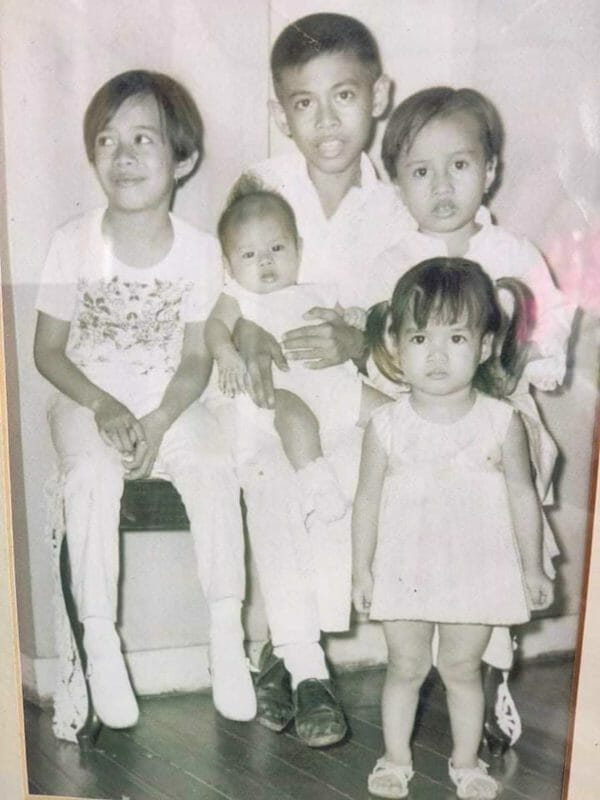(The 2nd in a series of profiles of Martial Law Babies, the generation Marcos tried and failed to mold into his version of the Hitler Youth. They fought his dictatorship instead.)
In April 1978, Jean Enriquez’s parents told her and her siblings to go out into the street with their pots, pans and ladles and make as much noise as they could in their Old Santa Mesa neighborhood in Manila.
It was the night of the Noise Barrage. The movement against the Marcos dictatorship had called on Filipinos to bang their pots, honk their car horns and yell out their opposition to the regime. “Laban! Laban!” was the dominant chant in the streets of Manila.

Jean Enriquez
The Noise Barrage was one of the first major mass acts of defiance against Marcos rule. Jean was then 10 years old. It was the moment she became an activist.
“That was a moment of courage and unity that defined me. Iyon ang sandali ng katapangan at pagkakaisa na mariing kumintal sa aking pagkatao,” she told me.
Fast forward 10 years.
Jean, now a 20-year-old student, came home to hear troubling news: her brother Josemari was missing. Eventually, she and her family found out what happened: Josemari, known by his activist name Kristo, became a victim of a bloody purge within the activist movement to which Jean and her siblings had devoted their young lives. The movement had falsely accused Kristo of being an enemy agent — and murdered him.
“Talagang pinagtaksilan ang kuya ko ng kilusan! The movement betrayed my brother!” she said. “Iyon ang unang nagpasiklab ng aking galit. I was overwhelmed with rage.”
The two events helped shape Jean’s understanding of what activism should be about — a commitment to defy and resist a repressive order, but one that rejects narrow, sectarian and sometimes violent dogmatism.
It’s a lesson that became clear to many Martial Law Babies. That being activists means thinking critically and not being blinded and weighed down by narrow and sometimes dangerous political positions.
For Jean, the death of Kristo also reinforced the view that activism should be about affirming life.
“Mas nadama ko ang pagpapahalaga sa buhay, sa mga demokratikong proseso ng pagpapasya, sa sinserong malasakit sa kapwa o compassion at hindi pag-iisantabi sa pakiramdam ng mga tao. I learned to value life, embracing democracy in decision-making, and the importance of sincere sacrifice, compassion and respect for people.”
“Ipinagmamalaki kong ‘Kristo’ ang tinawag ng mga kasama at kaibigan sa kanya. Di lamang sa anyo, ngunit sa sakripisyo. Alam kong sinikap nyang sundin ang yapak ng unang humawak ng pangalang iyon. Payak, hindi kumukuha ng atensyon, mapanuri, may pagkiling sa dukha, may pagkiling sa paglikha. Maikli ang naging buhay ng kuya ko subalit nananatili ang kanyang epekto. Hindi lang sa mga pamayanang mapalad niyang na-organisa, kundi sa akin. Patuloy akong natututo sa kanyang katahimikan, katapangan, pagiging malalim, mapagkumbaba, bukas at makatuwiran. Mali man ang kilusang ipinagtanggol niya, hindi ko iiwanan ang mas dalisay niyang paninindigan – para sa katarungan.”
(“I’m proud that he was called Kristo by his friends and colleagues. It wasn’t just because he looked like Christ, but he also behaved that way. He tried to embrace that path. Humble, thinking critically, a staunch ally of the poor, creative. My brother led a short life, but he had a huge impact, not just on the people he helped organize but also on me. I continue to learn from his humility, his courage, his depth and openness. The movement he joined may be in the wrong, but I will not abandon what he stood for — justice.”)

Jean Enriquez’s late brother, Josemari aka Kristo, with his siblings. CONTRIBUTED
Jean has emerged as one of the most important activist leaders in the country, and a powerful voice in an issue that is often ignored and neglected: women’s rights. She is a supporter of Leni Robredo’s campaign, whose strong ties to social movements is a strength, she says.
Jean wrote the lyrics to a song that’s about to be released, “Laban para sa Nililiyag” — Song for a Loved One. Part of the song referred to Robredo’s struggle and those of other widows, including the women who lost a loved one in the Duterte Killings.
“Ang walang kabiyak, kasama ay anak
Humugot sa puso ng naising payak
Sana ay payapa, ginhawa’t tama
Matamis na bukas, harinawa’y tiyak.”
“We need her to beat Marcos,” she said. But in the end, change will not depend on one person, or one leader, but on building a thriving, dynamic social movement led by people who are genuinely committed to the needs of communities and the nation.
“Ang taas ng standard ko sa mga kilusan, sa mga social movements,” Jean said. “My standards for social movements are really high,” she told me. Are they “really sincere about serving the most marginalized — or is it just about promoting themselves. That tendency I still strongly observe among political parties.”
“That’s why I don’t join political parties,” she said. And even in alliances she joins, “when there are signs of sectarianism, I raise objections.”

